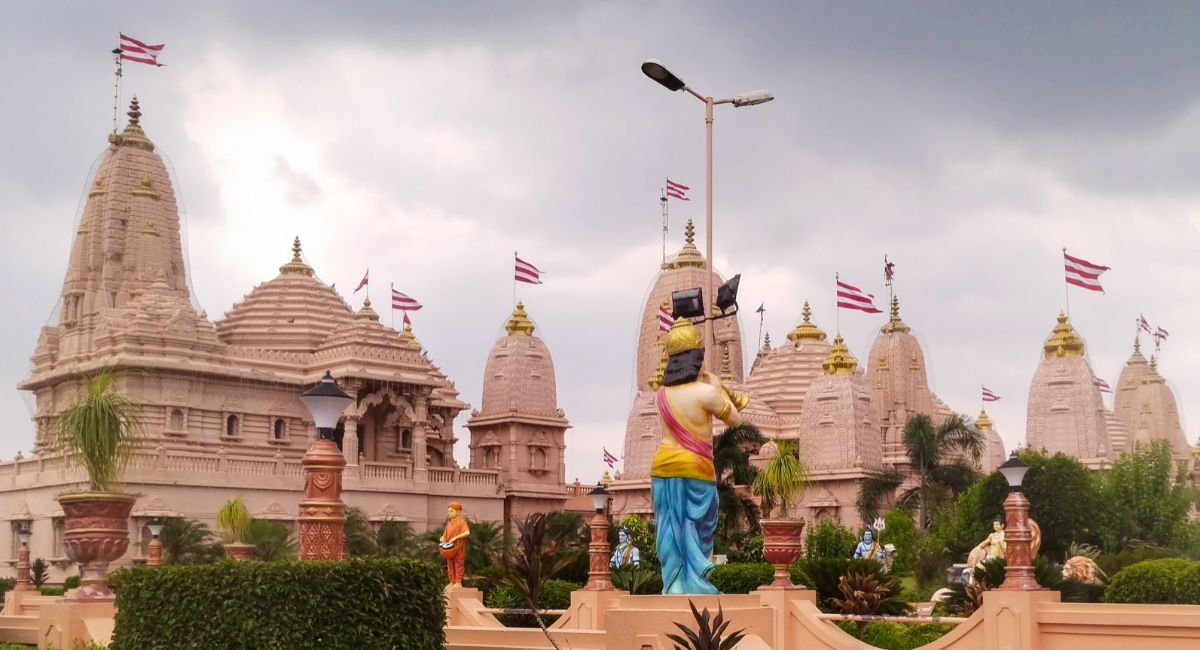The massive national wave of devotion to Lord Ram, witnessed recently during the consecration of a new temple in the Indian city of Ayodhya, was breathtaking—and inspiring. Even though I grew up in a family steeped in Krishna worship, the reverence for Bhagwaan Ram was no less sacrosanct even in my milieu of Krishna devotees. So, I could relate to the joy of the millions of genuine devotees, and their innocence, surrounding the Ram Mandir.
What is of concern, however, is the noxious comingling of politics and religion. As someone who drinks deeply from the well of Hindu wisdom, or Sanatan Dharma—with a daily routine of over two hours of yoga, meditation, pranayama, and gatherings of seers, sages, and scriptures—it pains me to see its flagrant weaponization by a political party.
An unparalleled spiritual heritage of supreme knowledge is being reduced to an opportunistic performative religion, drummed up for vote-bank politics. The earnest faith of the many millions of Indians is being co-opted for naked consolidation of power, and a beautiful path to God-realization is being corrupted into a chauvinistic dagger cleaving through national unity.
India has been blessed with the rarest of rare gifts: a body of spiritual knowledge handed down from the ancient rishis that dares to propose the possibility of a transcendental transformation of the mortal to the divine—and that this can be a living experience, not just an article of faith promising heaven in the afterlife.
From the Bhagavad Gita to the Ashtavakra Gita, our sacred texts implore us to undertake a deeply personal spiritual journey of self-transformation—not the chest-thumping superficial performance of seemingly sacred acts. From luminaries like Patanjali and Adi Shankaracharya, to the more recent self-realized masters like Ramana Maharishi and Swami Vivekananda, and countless other enlightened beings produced by this land—all have unanimously emphasized chipping away at the unreality of our human form to discover the divinity that is our true self.
It is not that Hinduism does not allow for the kind of worship that was on display during the consecration of the Mandir. Communal rituals too have been a long and valued tradition in Hinduism. However, the Gita warns us against rituals and worship done in ignorance or for egoic ends—such as, for example, the large-scale religious passions orchestrated by a well-oiled political machinery. This is the kind of performative religion where the “devotees” are WhatsApp warriors flaunting their majoritarian muscle and solidifying lines of division. You are expected to either fall in step with them or be outcasted with ugly labels like sickular, Macaulian, antinational, and worse.
True dharma, on the other hand, is one that would strengthen our conscience to call out censorship, bullying, hatemongering, lynching, and killings in the name of religion. But most find it hard, if not impossible, to stand up to a massive national mood. Why buck the trend, become the pariah, and even perhaps face brutal harassment and death threats? Why put yourself through all this agony when you can, instead, take refuge in the security and pride of the masses?
But this jumping on the bandwagon will extract a price! The Hindus, giddy from the heady euphoria of majoritarian fervor, who are either okay, or worse—enthusiastic—about such politicization of their religion, may be fooling themselves if they think they’re the beneficiary in this profane hookup.
Look around… theocracies haven’t fared well. Countries like Iran, Afghanistan, and Pakistan, the ones practically ruled by Mullahs, are failed states. In contrast, millions are clamoring to come to the U.S., a country where separation of church and state has been enshrined in the Constitution. Countries that are seen as exemplary and are consistently ranked at the top of happiness markers, such as the Scandinavian nations, are the ones that are liberal, inclusive, and secular. Japan, another successful nation, values secularism despite being monocultural. Even an authoritarian regime like China knows the value of secularism.
Right from ancient times, the ethos of Bharatvarsha – the land of India – has been deeply ingrained in eclecticism, coexistence, and diversity. Any attempt to thrust theocracy upon this massively diverse population of close to 1.5 billion is bound to end in disaster.
Parthiv N. Parekh is editor-in-chief of Khabar magazine, where a version of this article was first published in Khabar magazine (www.khabar.com), and is republished here with permission.




